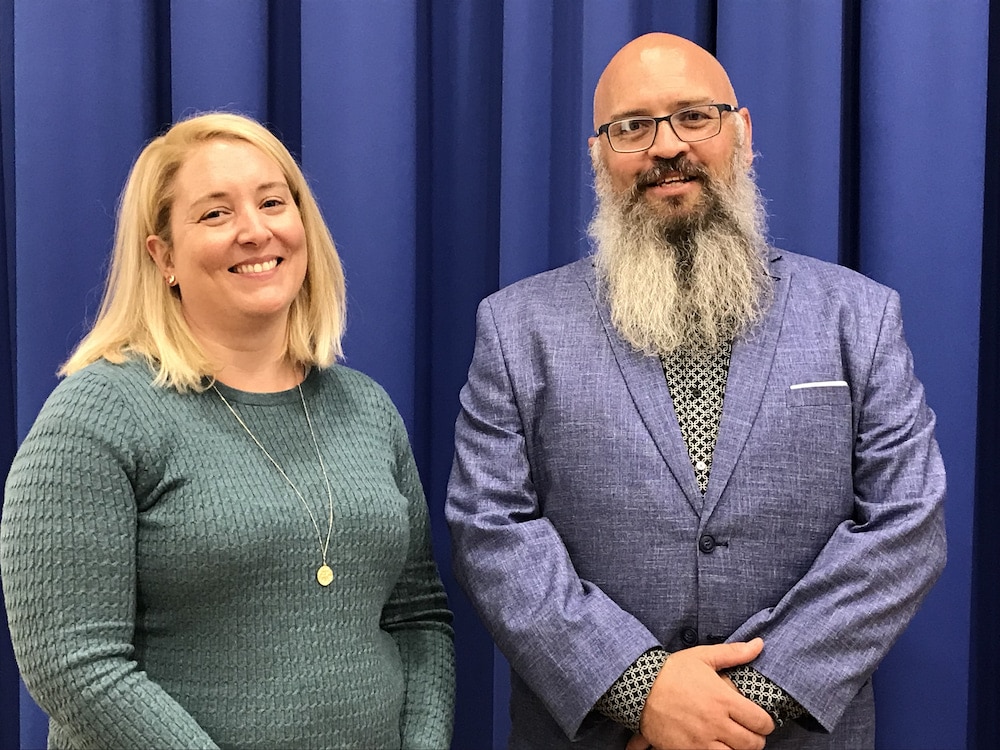The pandemic left more Canberrans homeless and sleeping on the streets, so community services have welcomed $2.5 million from the ACT Government to expand homelessness services and help rough sleepers find accommodation.
“We are really committed as a government to eliminating homelessness, and we’re going to be able to do this because of the support of our community partners,” said Rebecca Vassarotti, ACT Minister for Homelessness and Housing Services.
Winter Lodge (run by Argyle Housing) was set up in 2020 to provide temporary accommodation for homeless men during winter; it has received $90,000 to run all year round, rather than for only six months, and will change its name to Ainslie Lodge. Since it opened, it has housed 380 men sleeping rough, of whom 100 moved into long-term housing in Ainslie Village or the private rental market, said Justin Nyholm, Argyle Housing’s project manager.
OneLink (run by Woden Community Service) will receive $906,000 for its rough sleepers project, which has helped 40 people sleeping on the streets find immediate accommodation (in hotels) and then housing. OneLink leases the property for 12 months while the client considers what they need to have a long-term, secure and safe home, explained Lynton Sheehan, Woden Community Service’s director of housing and community services.
That $906,000 will also pay for a community mental health specialist for a year, to help rough sleepers access specialist mental health services. The specialist will be skilled in housing and homelessness, mental health, alcohol and other drugs, family support, and youth support.
“It’s through that integration that we can really start to address not just homelessness, but its social determinants,” Mr Sheehan said.
More than 90 per cent of people sleeping rough on the street have chronic mental illness and issues with alcohol, tobacco, and other drugs, explained Anne Kirwan, CEO of Marymead CatholicCare Canberra & Goulburn. Every year someone spends on the streets has the equivalent of six years’ impact on their physical and mental health, Mr Sheehan said; they struggle to access basic services like GPs, dentists, and mental health professionals.
“There is a real gap in community, where there has been a breakdown in connections between people sleeping rough and the mental health specialist services,” Ms Kirwan said. “We hope this position will be a conduit and enable seamless access into specialist services.”
“The more support someone has around their mental health and wellbeing, the more connected they are with a community … the less likely they are to experience homelessness,” Mr Sheehan said.
OneLink will also receive $1.56 million to meet an increase in demand and complexity of clients. The agency will use some of this to hire more staff; OneLink receives up to 900 calls a month from Canberrans seeking help with homelessness, said CEO Jenny Kitchin. But OneLink will use most of those funds to broker money to other organisations that provide support or case management services for homeless people.
“The ACT has a great support network of services and programs that can prevent homelessness (early intervention), or, where that is not possible, to support longer-term or recurring homelessness,” said Erin MacArthur, CatholicCare’s director of youth, mental health, homelessness, justice programs and family services.
“Our responsibility is to … make sure that we’re fighting together to support each individual based on their needs, their circumstances, and their goals.”

Last year, Canberra Daily’s four-part series for Homelessness Week in August revealed that homelessness significantly increased during the pandemic, from 1,600 people in July 2017 to 1,887 in March 2021 – due above all to housing affordability.
That was before the August lockdown. Since then, demand for housing has increased; OneLink took 7,800 inquiries from Canberrans, and accommodated 193 individuals or families in hotels, Mr Sheehan said. More than 2,000 Canberrans were homeless, said ACTCOSS CEO Dr Emma Campbell, and more than 30 per cent of clients who approached homelessness services with a need for accommodation did not have their needs met.
The ACT Government has committed to spend $18 million over the next four years to address homelessness. Over the last year, the ACT Government spent $12 million more for homelessness services, on top of the $27 million it provides annually.
“The ACT Government is looking to pull every lever it possibly can in terms of providing additional public housing, in terms of supporting affordable rental and community housing,” Ms Vassarotti said.
“But some things are out of our control, and we do really need the Federal government to step up and look at things such as the tax settings, or concessions that treat housing not as a place for someone to call home, but as a way to create to create wealth. There are also opportunities for community providers and private landlords to contribute to us trying to solve this issue.”
ACTCOSS response
ACTCOSS welcomed this additional investment in the ACT’s homeless service.
“This investment is desperately needed as Canberra’s housing and homeless crisis continues to worsen,” Dr Campbell said.
ACTCOSS and its partners had called for additional funding for homelessness organisations as demand for these services increases.
Dr Campbell said the ACT Government must address the acute shortage of social housing in the ACT.
Almost 3,000 households languish on the ACT’s social housing waiting list, she said. Applications for public housing in the ACT increased dramatically over the last four years and Canberrans waited more than four years (1,541 days) on average for standard social housing.
“Yet we are going backwards in the provision of social housing dwellings,” Dr Campbell said.
There were fewer public housing dwellings in 2021 than in 2012 (10,950) or in 2018 (11,181).
There were 164 fewer households in social housing in the ACT in 2021 compared to 2020. That number was lower than a decade ago in 2012 (11,328), or its peak at 11,435 households in 2017.
ACTCOSS called on the ACT Government to urgently implement a range of policies to fix the housing and homelessness crisis:
– The full, transparent and timely delivery of the ACT Housing Strategy, and the delivery of all commitments in the Parliamentary and Governing Agreement, which includes 400 additional public houses and 600 affordable rental dwellings;
– Empowering Community Housing Providers (CHPs) to address the shortfall of affordable homes through access to affordable land, rezoning to allow development by CHPs, and rates exemptions;
– Enacting all economic, social, and cultural rights in the ACT Human Rights Act 2004 including a Right to Housing.
ACTCOSS also called on the Australian Government to raise the rate of income support to enable people to keep a roof over their heads while looking for employment, and to invest in housing as a key part of Australia’s recovery from the COVID-19 health and economic crisis. KPMG states that every $1 million of public investment in social housing boosts GDP by $1.3 million.
“Investment in social housing not only makes sense for our community’s wellbeing, but it also makes economic sense,” Dr Campbell said.



